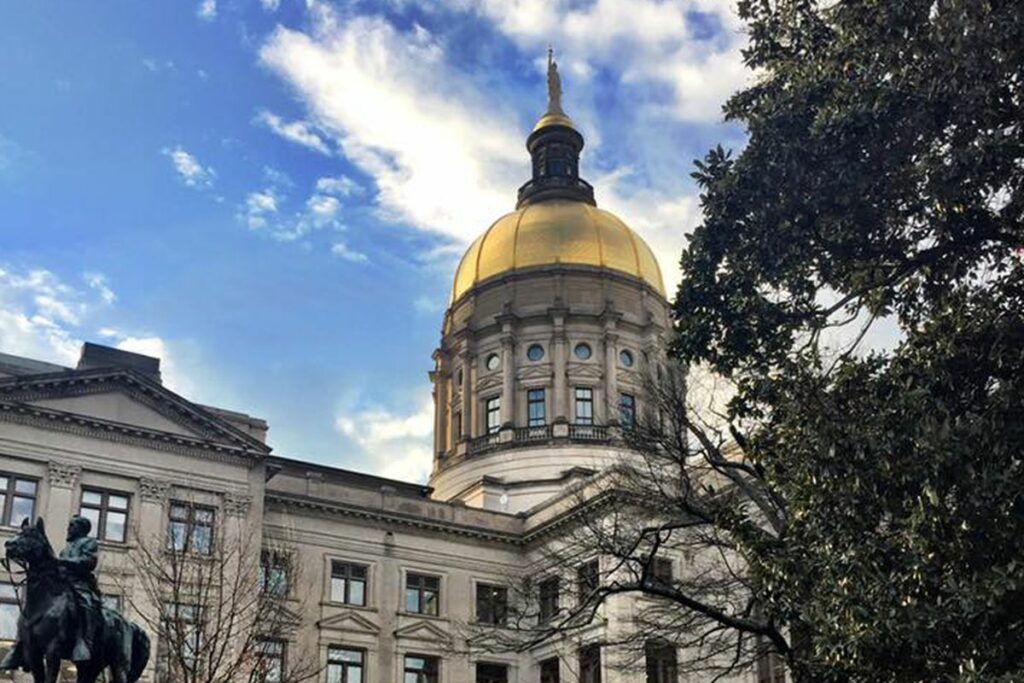
ATLANTA – Two Georgia veterans lent their support this week to the use of the psychedelic drug psilocybin in treating post-traumatic stress disorder (PTSD).
Following multiple combat deployments, Ethan Whitfield and Marcus Capone traveled outside of the U.S. for counseling and treatment of their PTSD with psilocybin after standard drugs failed to treat their severe depression. Both reported instant results following just one “dosing” session.
“My negative thought patterns and my self-destructive habits of thought changed overnight,” Whitfield told members of the Georgia House Defense & Veterans Affairs Committee Tuesday.
“I’m experiencing a new way of dealing with stresses in my life. I still experience anger, sadness, anxiety, [and] negativity. But they don’t imprison me.”
“I still go through days of depression or anger,” added Capone, co-founder of the nonprofit Veterans Exploring Treatment Solutions (VETS). “But now, they only last an hour. I’m able to climb out of them quite quickly.”
Whitfield and Capone testified during a hearing the committee called to explore the possibility of the state helping to fund a proposed Emory University study of psilocybin to treat PTSD in veterans.
Boadie Dunlop, medical director of Emory University’s Health Care Veterans Program, cited studies that have demonstrated the efficacy of psilocybin – known colloquially for decades as “magic mushrooms” – in treating major depressive disorder.
“It induces a state of mental change where one reevaluates one’s experience of the world, one’s connectedness to oneself and others … breaking people out of past patterns of thought,” said Dunlop, who also heads the newly created Center for Psychedelics and Spirituality at Emory.
Dunlop said none of the studies conducted with psilocybin and other psychedelic drugs thus far has focused on veterans, something he hopes to remedy. He said he is working to raise $1.85 million to conduct such a study.
Dunlop said psilocybin is not addictive. In fact, patients treated with the drug are able to kick addictions to the habit-forming drugs typically used to treat depression, he said.
He cited three instances where female patients have stayed off anti-depressants for a year after a single dose of psilocybin.
Both Whitfield and Capone said they stopped drinking immediately after being treated with psilocybin.
Dunlop cautioned that treatment with psilocybin must be done in a clinical setting with trained counselors in order for patients to feel safe using the drug.
Haley Zagoria, a graduate student at the University of Georgia working on a master’s degree in public health, told the committee people who experienced “bad trips” using psilocybin generally took the drug on their own with no therapeutic support.
“Even though people have abused this recreationally … this is a discussion we need to have,” said Rep. Heath Clark, R-Warner Robins, the committee’s chairman.
“For people who served their country and suffered dramatically for that, we ought to do everything we can to make sure those people have an opportunity to be normalized in some fashion.”
This story is available through a news partnership with Capitol Beat News Service, a project of the Georgia Press Educational Foundation.